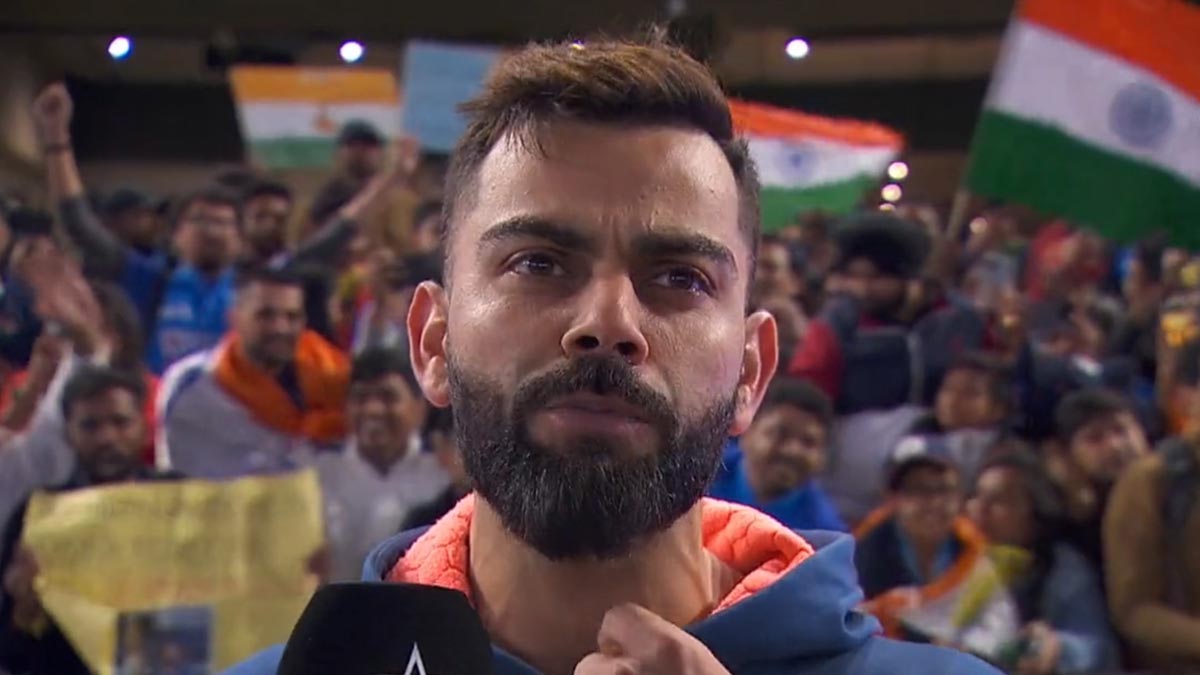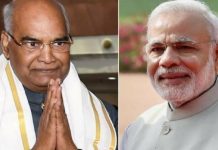
Cricketer Virat Kohli was appalled when he found that someone had made a video recording of his hotel room in his absence, and posted it on social media, again bringing into focus the issue of right to privacy.
Inarguably one of the finest batsmen that India has produced, Virat Kohli was ranked as one of the world’s most famous athletes by ESPN and one of the 100 most influential people in the world by Time magazine. He has over 27 crore followers on the two biggest social media platforms. Added to his cricket fans are fans of the Hindi cinema, for he is married to actor Anushka Sharma.
Yet like anyone else, Kohli deserves privacy in an exclusive hotel in sleepy Perth Australia. However, Kohli’s privacy was breached when someone, presumably a hotel employee or someone with hotel management’s concurrence entered his room in his absence, made a video recording of the room and Kohli’s belongings, and posted it on social media. Naturally, Kohli was ‘appalled’ and felt ‘paranoid about my privacy’ while his wife film star Anushka Sharma too made an issue of it.
Do celebrities or even ordinary folks have any rights to privacy? The Chandigarh University video leak of girl hostellers too had brought into focus the issue of privacy invasion in the digital age. The Supreme Court of India decision (2017) holds that the right to privacy is a fundamental right under Articles 14, 19 and 21 of the Constitution.
It may be recalled that a former Chief Justice and a Judge of the Punjab and Haryana High Court, Justice N.K. Sodhi had sometime ago moved the High Court against the installation of “surveillance cameras” at the residence of the Chief Justice. Justice Sodhi claimed that the high-resolution, infra-red cameras installed on the “tall poles” violated his right to privacy.
Justice Sodhi had contended that a notice was required to be displayed for general public’s information that the area is under CCTV surveillance. But it was not put up. A CCTV camera cannot be located at a place where it collects information which invades an individual’s privacy. He had added that the Chief Justice is well-protected at his residence, while moving in his vehicle and at the High Court, and the CCTV cameras cannot prevent an untoward incident
The cases related to invasion of privacy continue despite a nine-judge bench of the Supreme Court ruling that citizens enjoy a fundamental right to privacy, and that it is intrinsic to life and liberty and thus comes under Article 21 of the Indian constitution.
In its 547 page judgment, the Supreme Court had overruled verdicts given in the M.P. Sharma case in 1958 and the Kharak Singh case in 1961, both of which said that the right to privacy is not protected under the Indian constitution. The judgment also included a two-page final order, which states that MP Sharma and Kharak Singh are overruled, and the right to privacy is fundamental.
The lead judgment of 265 pages, authored by Justice D.Y. Chandrachud and co-signed by Chief Justice Khehar and Justices Nazeer and Agrawal stated that the judgment in M P Sharma holds essentially that in the absence of a provision similar to the Fourth Amendment to the US Constitution, the right to privacy cannot be read into the provisions of Article 20 (3) of the Indian Constitution. The judgment does not specifically adjudicate on whether a right to privacy would arise from any of the other provisions of the rights guaranteed by Part III including Article 21 and Article 19. The observation that privacy is not a right guaranteed by the Indian Constitution is not reflective of the correct position. M P Sharma is overruled to the extent to which it indicates the contrary.
Life and personal liberty are inalienable rights. These are rights which are inseparable from a dignified human existence. The dignity of the individual, equality between human beings and the quest for liberty are the foundational pillars of the Indian Constitution. Life and personal liberty are not creations of the Constitution. These rights are recognised by the Constitution as inheriting in each individual as an intrinsic and inseparable part of the human element which dwells within.
Privacy is a constitutionally protected right which emerges primarily from the guarantee of life and personal liberty in Article 21 of the Constitution. Elements of privacy also arise in varying contexts from the other facets of freedom and dignity recognised and guaranteed by the fundamental rights contained in Part III. Privacy is the constitutional core of human dignity. Privacy has both a normative and descriptive function. At a normative level privacy sub-serves those eternal values upon which the guarantees of life, liberty and freedom are founded. At a descriptive level, privacy postulates a bundle of entitlements and interests which lie at the foundation of ordered liberty.
Privacy includes at its core the preservation of personal intimacies, the sanctity of family life, marriage, procreation, the home and sexual orientation. Privacy also connotes a right to be left alone. Privacy safeguards individual autonomy and recognises the ability of the individual to control vital aspects of his or her life. Personal choices governing a way of life are intrinsic to privacy. Privacy protects heterogeneity and recognises the plurality and diversity of our culture.
It is important to underscore that privacy is not lost or surrendered merely because the individual is in a public place. Privacy attaches to the person since it is an essential facet of the dignity of the human being. The Supreme Court had observed that the Constitution must evolve with the felt necessities of time to meet the challenges thrown up in a democratic order governed by the rule of law. The meaning of the Constitution cannot be frozen on the perspectives present when it was adopted.
The Supreme Court had observed, “Technological change has given rise to concerns which were not present seven decades ago and the rapid growth of technology may render obsolescent many notions of the present. Hence the interpretation of the Constitution must be resilient and flexible to allow future generations to adapt its content bearing in mind its basic or essential features”.
A law which encroaches upon privacy will have to withstand the touchstone of permissible restrictions on fundamental rights. In the context of Article 21, an invasion of privacy must be justified on the basis of a law which stipulates a procedure which is fair, just and reasonable. The law must also be valid with reference to the encroachment on life and personal liberty under Article 21. An invasion of life or personal liberty must meet the three-fold requirement of (i) legality, which postulates the existence of law; (ii) need, defined in terms of a legitimate state aim; and (iii) proportionality which ensures a rational nexus between the objects and the means adopted to achieve them.
The dangers to privacy in an age of information can originate not only from the state but from non-state actors as well and the Supreme Court had commended to the Union Government the need to examine, and put into place a robust regime by ensuring a sensitive balance between individual interests and legitimate concerns of the state.












